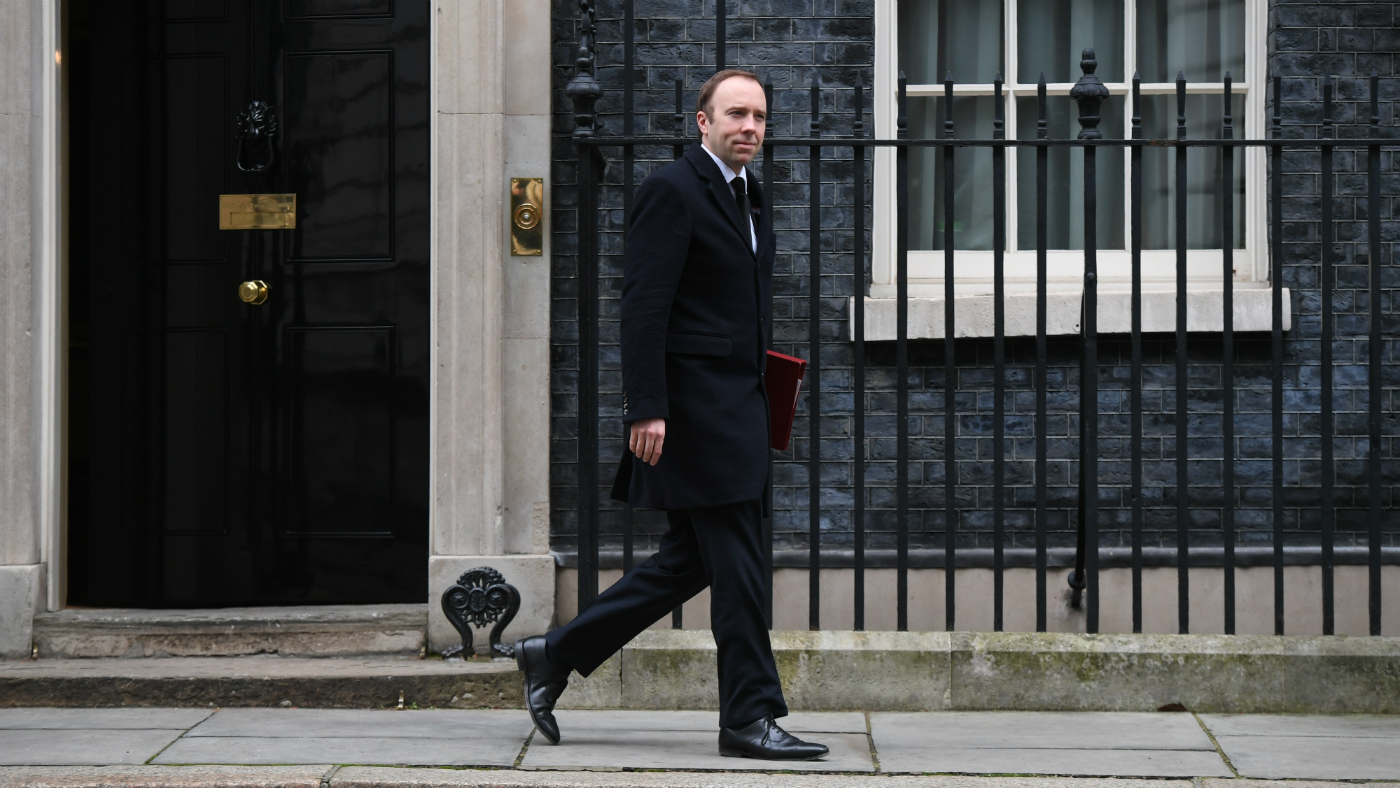Coronavirus: how and when will the Pfizer vaccine be rolled out to millions of Brits?
Matt Hancock says NHS will be ready to administer doses to vulnerable people from 1 December

A free daily email with the biggest news stories of the day – and the best features from TheWeek.com
You are now subscribed
Your newsletter sign-up was successful
The NHS will be ready to begin inoculating millions of people against Covid-19 with the breakthrough Pfizer vaccine within weeks, the health secretary has told MPs.
Matt Hancock said the health service would begin rolling out a mass vaccination programme from 1 December if the jab is approved for use in the UK.
But he warned “there are no guarantees” that the vaccine will end the crisis quickly, adding: “We don’t know what proportion of the population vaccination needs to reach in order for this to stop the epidemic.”
The Week
Escape your echo chamber. Get the facts behind the news, plus analysis from multiple perspectives.

Sign up for The Week's Free Newsletters
From our morning news briefing to a weekly Good News Newsletter, get the best of The Week delivered directly to your inbox.
From our morning news briefing to a weekly Good News Newsletter, get the best of The Week delivered directly to your inbox.
How will it be rolled out?
German firm Pfizer raised hopes worldwide on Monday by announcing that the first interim results in large-scale trials had found its coronavirus vaccine to be 90% effective.
Hancock told the Commons yesterday that Britain has purchased 40 million doses of the vaccine - enough to innoculate 20 million people, each of whom needs to receive two doses, given 21 days apart, for the jabs to be effective. The Telegraph reports that ten million of these doses are “due to be delivered by the end of this year, as long as regulatory approval is granted”.
NHS England and the British Medical Association have agreed that family doctors should “play the lead role” in the vaccination drive, which will be of “a scale and complexity” unprecedented in the health service’s long history, says The Guardian.
A free daily email with the biggest news stories of the day – and the best features from TheWeek.com
This drive - described by Hancock as a “mammoth logistical operation” - will see GP services reduced well into 2021 “so family doctors can immunise millions of people against coronavirus at new seven-day-a-week clinics”, the paper adds.
GPs will also recieve an extra £150m in funding to help with the rollout.
Who will be first up?
Although the health service is preparing to begin the vaccination programme at the start of December, Hancock said that the bulk of the rollout was always expected to be “in the first part of 2021”, the BBC reports.
Certain high-risk groups will be prioritised in the initial rollout.
After analysing data to determine which groups suffer the worst outcomes from Covid-19 and which are at highest risk of death, the Joint Committee on Vaccination and Immunisation (JCVI) has issued interim guidance that says the order of priority should be:
1. Older adults in a care home and care home workers2. All those aged 80 and over3. Anyone 75 and over4. People aged 70 and over5. All those aged 65 and over6. High-risk adults under 657. Moderate-risk adults under 658. All those aged 60 and over9. All those 55 and over10. All those aged 50 and over11. The rest of the population, with priority yet to be determined.
Current government guidance states that “whether health and social care workers should be prioritised above, alongside, or below, persons at highest risk” from the virus would “depend on the characteristics of the vaccines when they become available and the epidemiology of disease at the time of delivery”.
-
 What are the best investments for beginners?
What are the best investments for beginners?The Explainer Stocks and ETFs and bonds, oh my
-
 What to know before filing your own taxes for the first time
What to know before filing your own taxes for the first timethe explainer Tackle this financial milestone with confidence
-
 The biggest box office flops of the 21st century
The biggest box office flops of the 21st centuryin depth Unnecessary remakes and turgid, expensive CGI-fests highlight this list of these most notorious box-office losers
-
 A Nipah virus outbreak in India has brought back Covid-era surveillance
A Nipah virus outbreak in India has brought back Covid-era surveillanceUnder the radar The disease can spread through animals and humans
-
 Trump HHS slashes advised child vaccinations
Trump HHS slashes advised child vaccinationsSpeed Read In a widely condemned move, the CDC will now recommend that children get vaccinated against 11 communicable diseases, not 17
-
 A fentanyl vaccine may be on the horizon
A fentanyl vaccine may be on the horizonUnder the radar Taking a serious jab at the opioid epidemic
-
 Health: Will Kennedy dismantle U.S. immunization policy?
Health: Will Kennedy dismantle U.S. immunization policy?Feature ‘America’s vaccine playbook is being rewritten by people who don’t believe in them’
-
 How dangerous is the ‘K’ strain super-flu?
How dangerous is the ‘K’ strain super-flu?The Explainer Surge in cases of new variant H3N2 flu in UK and around the world
-
 Vaccine critic quietly named CDC’s No. 2 official
Vaccine critic quietly named CDC’s No. 2 officialSpeed Read Dr. Ralph Abraham joins another prominent vaccine critic, HHS Secretary Robert F. Kennedy Jr.
-
 This flu season could be worse than usual
This flu season could be worse than usualIn the spotlight A new subvariant is infecting several countries
-
 Covid-19 mRNA vaccines could help fight cancer
Covid-19 mRNA vaccines could help fight cancerUnder the radar They boost the immune system